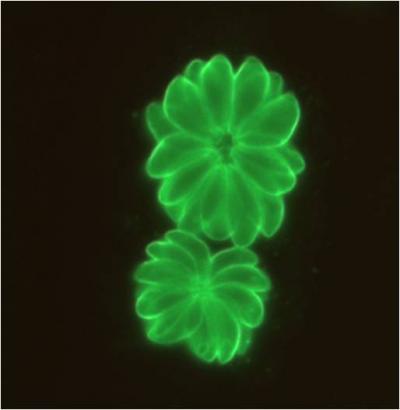The parasite Toxoplasma gondii (T. gondii) is one of the major causes of food-borne diseases but new insights into how the immune system combats T. gondii could lead to the development of long-sought vaccines.
To fight off pathogens, the immune system relies on Toll-like receptors (TLRs), a class of proteins that recognize microbes and activate immune responses. The important role of TLR11 in recognizing the T. gondii infection was previously demonstrated by a team led by Sankar Ghosh of Columbia University and Alan Sher of the National Institute of Allergy and Infectious Diseases. But scientists had not yet identified any TLRs, including TLR11, that could promote survival in infected animals.
In anew study, Ghosh, Sher, and colleagues focused on the previously uncharacterized TLR12 because it is closely related to TLR11 and physically interacts with that receptor, suggesting that the two might work together to mount immune responses. When they genetically engineered mice to lack TLR12, they found that immune cells could not recognize or protect against T. gondii, and these mice quickly succumbed to infection.

Image of T. gondii. Credit: Sankar Ghosh
Although both TLR11 and TLR12 activate overlapping immune responses to T. gondii in certain types of cells, TLR12 also triggers responses in a distinct set of immune cells to promote survival.
"Prior to this study, TLR12 had no known function in the immune system, and it was not known what pathogen this receptor recognized," Ghosh says. "We have demonstrated that TLR12 is essential for resistance to T. gondii in mice."
Because TLR12 also recognized another related parasite, the findings could have broad clinical implications. "By investigating how immune cells expressing TLR12 organize the immune response against T. gondii infection, we hope to identify new means of promoting protective immune responses against T. gondii and potentially other important parasite pathogens," Ghosh says.

Toxoplasma gondii tachyzoites egressing from an infected fibroblast and invading new cells. Credit: Dr. Gustavo Arrizabalaga
Published in Immunology




Comments